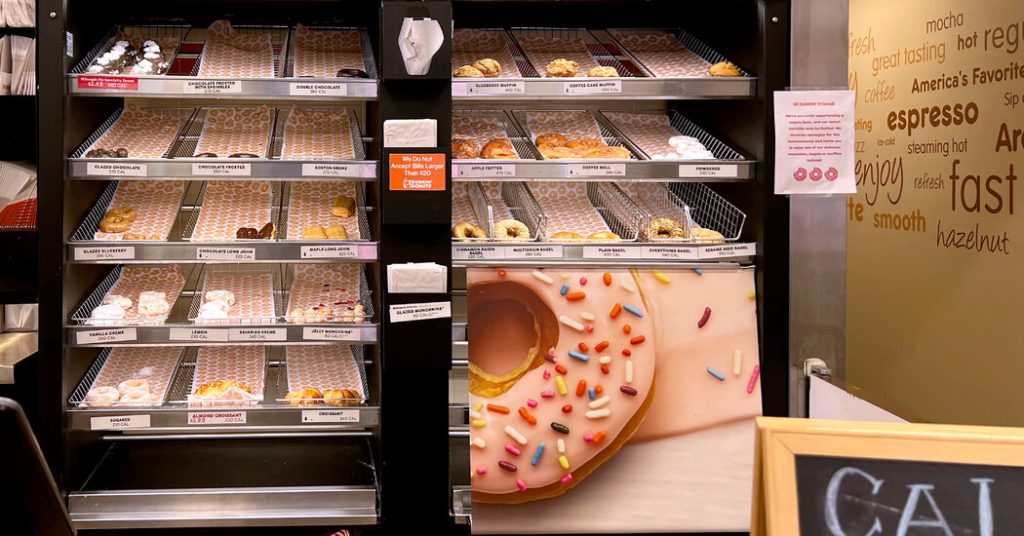The Great Baked Goods Recall: Understanding the Risks and Implications
Introduction: A Close Call for Consumers
In early 2024, millions of baked goods, including beloved treats like doughnuts and coffee rolls sold at Dunkin’, were recalled due to a potential contamination with the bacteria Listeria monocytogenes. This precautionary measure was taken by FGF Brands, the manufacturer responsible for distributing these goods across the U.S. and Canada. The recall, which was made public by the Food and Drug Administration (FDA), raised concerns among consumers and highlighted the critical importance of food safety. While no illnesses were reported, the situation served as a stark reminder of how vulnerable our food supply can be. This incident also sparked discussions about the bacteria Listeria monocytogenes, its health risks, and the steps companies take to ensure consumer safety.
The Recall: What, When, and Why?
The recall affected approximately two million baked goods, including a variety of doughnuts, French crullers, éclairs, and coffee rolls. Some of these items were sold at Dunkin’, a popular chain known for its coffee and baked goods. The products in question were produced before December 13, 2024, and were pulled from the market as a precautionary measure. The FDA classified the recall as a Class II, meaning that while the contamination could lead to temporary or reversible health issues, the likelihood of severe consequences was low. Despite this classification, the move was significant, as it involved a large number of products and a well-known brand.
FGF Brands initiated the recall voluntarily, citing “non-product related findings” at one of its facilities in the U.S. The company emphasized that no doughnuts or food contact surfaces had tested positive for Listeria, suggesting that the issue may not have been directly related to the products themselves. However, the company chose to act with caution, demonstrating a commitment to food safety. The recall was completed in early January, and by the time the FDA announcement was made, the affected products were no longer on the market.
Listeria Monocytogenes: The Silent Threat
At the heart of this recall is Listeria monocytogenes, a bacteria that can contaminate food and cause serious illnesses. According to the Centers for Disease Control and Prevention (CDC), Listeria is the third leading cause of death from foodborne illnesses in the U.S. While infections are rare, they can be severe, particularly for vulnerable populations such as pregnant women, older adults, newborns, and individuals with weakened immune systems.
Symptoms of Listeria infection typically include fever and headaches, and in severe cases, the bacteria can lead to life-threatening complications. Each year, approximately 1,600 people in the U.S. are infected with Listeria, resulting in about 260 deaths. These numbers are a sobering reminder of the importance of vigilance in food safety.
The Bigger Picture: Food Safety in America
The recall of FGF Brands’ baked goods is part of a larger conversation about food safety in America. Foodborne illnesses are a persistent issue, with millions of people affected each year. While significant progress has been made in reducing the incidence of foodborne diseases, incidents like this recall highlight the ongoing challenges. The FDA and other regulatory agencies play a crucial role in monitoring food safety and responding to potential threats.
The classification system used by the FDA helps to assess the severity of a recall. A Class II recall, like this one, indicates that the contamination could cause temporary or medically reversible adverse health consequences, or that the risk of serious harm is low but not entirely absent. While no illnesses were reported in this case, the FDA’s decision to classify the recall as Class II underscores the importance of erring on the side of caution.
A Precautionary Approach: FGF Brands’ Response
FGF Brands’ decision to issue a voluntary recall reflects a precautionary approach to food safety. The company stated that the recall was based on findings at one of its doughnut facilities, though it clarified that no doughnuts or food contact surfaces had tested positive for Listeria. This suggests that the issue may have been related to the facility’s environment or practices rather than the products themselves.
By taking proactive steps to address the situation, FGF Brands demonstrated a commitment to consumer safety. The company also noted that the recall was completed quickly, with all affected products removed from the market by early January. This swift action likely minimized the risk of any potential harm. In a statement, FGF Brands reiterated its dedication to food safety, emphasizing that the recall was a precautionary measure.
Conclusion: Lessons Learned and Moving Forward
The recall of FGF Brands’ baked goods serves as a reminder of the importance of robust food safety measures. While the incident did not result in any reported illnesses, it highlights the potential risks associated with foodborne pathogens like Listeria monocytogenes. The FDA’s classification system and the company’s swift response demonstrate the commitment to protecting public health.
As consumers, it is essential to remain informed about food safety issues and to take steps to protect ourselves, especially if we are part of vulnerable populations. Regularly checking for recalls, following proper food handling practices, and being aware of the symptoms of foodborne illnesses can help to reduce the risks. This incident also underscores the importance of transparency and accountability in the food industry. By acting with caution and prioritizing consumer safety, companies like FGF Brands can build trust and maintain the integrity of their products.
In the broader context, this recall is a reminder of the ongoing challenges in ensuring the safety of our food supply. While significant progress has been made, there is always room for improvement. By staying vigilant and working together, we can continue to reduce the risks associated with foodborne illnesses and create a safer food system for everyone.












